BMW i7 vs Porsche Macan – Which model is better for everyday use?
Everyday use, family trips or long-distance drives – here’s where the differences show.
Discover whether BMW i7 or Porsche Macan fits your lifestyle better.
Costs and Efficiency:
Looking at overall running costs, both models reveal some interesting differences in everyday economy.
Porsche Macan has a convincingly advantage in terms of price – it starts at 69200 £, while the BMW i7 costs 99200 £. That’s a price difference of around 30000 £.
In terms of energy consumption, the advantage goes to the Porsche Macan: with 17 kWh per 100 km, it’s hardly perceptible more efficient than the BMW i7 with 18.50 kWh. That’s a difference of about 1.50 kWh.
As for range, the Porsche Macan performs barely noticeable better – achieving up to 644 km, about 20 km more than the BMW i7.
Engine and Performance:
Power, torque and acceleration say a lot about how a car feels on the road. This is where you see which model delivers more driving dynamics.
When it comes to engine power, the BMW i7 has a minimal edge – offering 659 HP compared to 639 HP. That’s roughly 20 HP more horsepower.
In acceleration from 0 to 100 km/h, the Porsche Macan is slightly quicker – completing the sprint in 3.30 s, while the BMW i7 takes 3.70 s. That’s about 0.40 s faster.
In terms of top speed, the Porsche Macan performs slight better – reaching 260 km/h, while the BMW i7 tops out at 250 km/h. The difference is around 10 km/h.
There’s also a difference in torque: Porsche Macan pulls slight stronger with 1130 Nm compared to 1100 Nm. That’s about 30 Nm difference.
Space and Everyday Use:
Beyond pure performance, interior space and usability matter most in daily life. This is where you see which car is more practical and versatile.
Both vehicles offer seating for 5 people.
In curb weight, Porsche Macan is slightly lighter – 2295 kg compared to 2595 kg. The difference is around 300 kg.
In terms of boot space, the Porsche Macan offers barely noticeable more room – 540 L compared to 500 L. That’s a difference of about 40 L.
When it comes to payload, Porsche Macan slight takes the win – 545 kg compared to 535 kg. That’s a difference of about 10 kg.
Who comes out on top?
Overall, the Porsche Macan shows itself to be outperforms in nearly all aspects and secures the title of DriveDuel Champion.
It convinces with the more balanced overall package and proves to be the more versatile choice for everyday use.

Porsche Macan
BMW i7
The new BMW i7 epitomises luxury and innovation, seamlessly blending advanced technology with elegant design. Its interior offers an unparalleled experience, with premium materials and cutting-edge features that create a tranquil yet engaging atmosphere for both driver and passengers. The i7's performance is both dynamic and efficient, demonstrating BMW's commitment to sustainable driving without compromising on the exhilarating drive the brand is known for.
details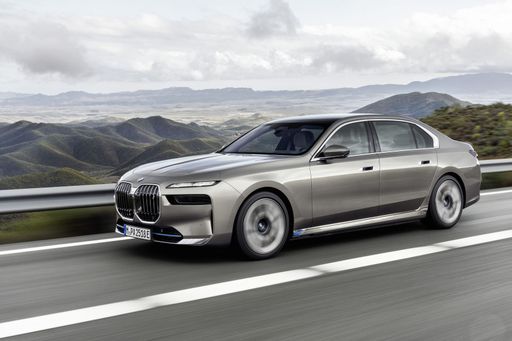 @ press.bmwgroup.com
@ press.bmwgroup.com
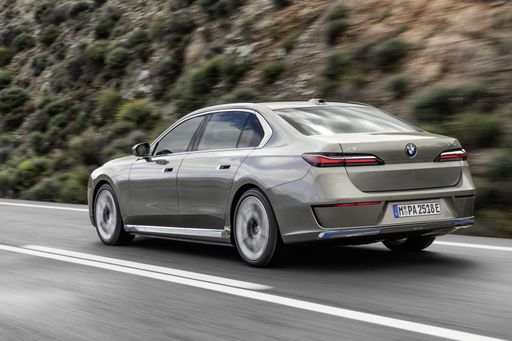 @ press.bmwgroup.com
@ press.bmwgroup.com
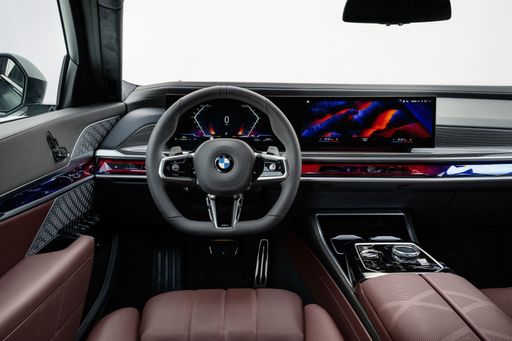 @ press.bmwgroup.com
@ press.bmwgroup.com
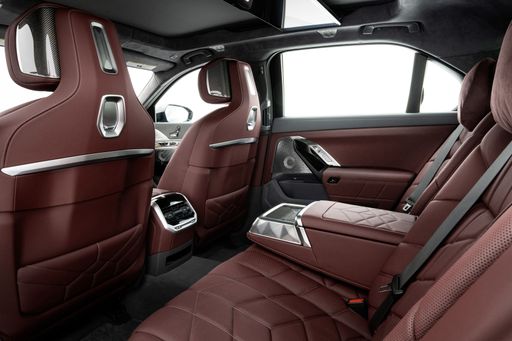 @ press.bmwgroup.com
@ press.bmwgroup.com
Porsche Macan
Der Porsche Macan verkörpert die ideale Fusion aus Sportlichkeit und Alltagstauglichkeit und beeindruckt mit seiner dynamischen Linienführung. Innen erwartet den Fahrer ein luxuriös ausgestatteter Raum, der höchste Qualität mit modernster Technologie verbindet. Fahreigenschaften und Handling sind auf typisch Porsche-Niveau und bieten ein unvergleichliches Fahrerlebnis, das jeden Ausflug zum Vergnügen macht.
details @ Porsche
@ Porsche
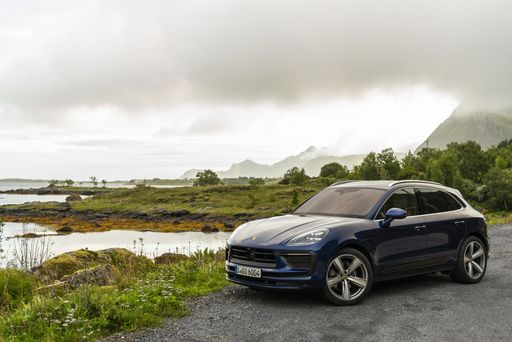 @ Porsche
@ Porsche
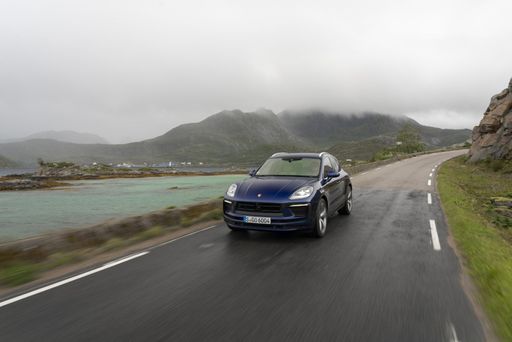 @ Porsche
@ Porsche
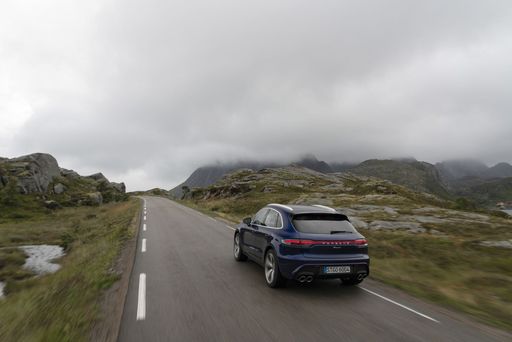 @ Porsche
@ Porsche
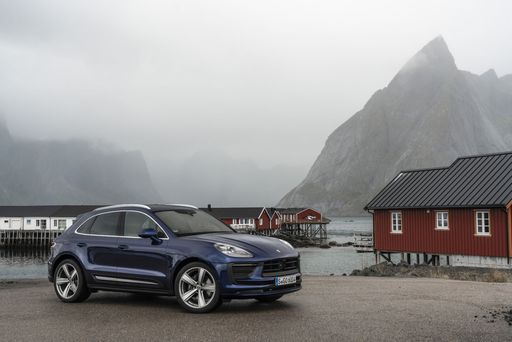 @ Porsche
@ Porsche
 @ Porsche
@ Porsche
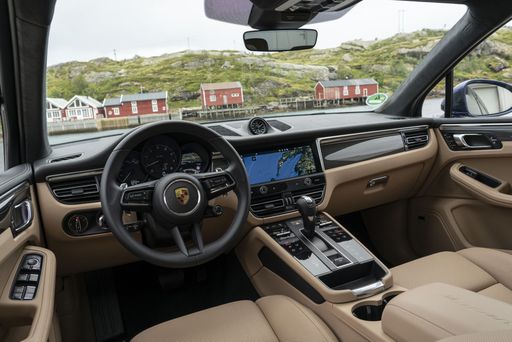 @ Porsche
@ Porsche

|

|
|
|
|
Costs and Consumption |
|
|---|---|
|
Price
99200 - 157000 £
|
Price
69200 - 99000 £
|
|
Consumption L/100km
-
|
Consumption L/100km
-
|
|
Consumption kWh/100km
18.5 - 20.8 kWh
|
Consumption kWh/100km
17 - 18.3 kWh
|
|
Electric Range
559 - 624 km
|
Electric Range
590 - 644 km
|
|
Battery Capacity
101.70 kWh
|
Battery Capacity
95 kWh
|
|
co2
0 g/km
|
co2
0 g/km
|
|
Fuel tank capacity
-
|
Fuel tank capacity
-
|
Dimensions and Body |
|
|---|---|
|
Body Type
Sedan
|
Body Type
SUV
|
|
Seats
5
|
Seats
5
|
|
Doors
4
|
Doors
5
|
|
Curb weight
2595 - 2770 kg
|
Curb weight
2295 - 2420 kg
|
|
Trunk capacity
500 L
|
Trunk capacity
480 - 540 L
|
|
Length
5391 mm
|
Length
4784 mm
|
|
Width
1950 mm
|
Width
1938 mm
|
|
Height
1544 mm
|
Height
1621 - 1623 mm
|
|
Max trunk capacity
-
|
Max trunk capacity
1288 - 1348 L
|
|
Payload
480 - 535 kg
|
Payload
510 - 545 kg
|
Engine and Performance |
|
|---|---|
|
Engine Type
Electric
|
Engine Type
Electric
|
|
Transmission
Automatic
|
Transmission
Automatic
|
|
Transmission Detail
Reduction Gearbox
|
Transmission Detail
Reduction Gearbox
|
|
Drive Type
Rear-Wheel Drive, All-Wheel Drive
|
Drive Type
Rear-Wheel Drive, All-Wheel Drive
|
|
Power HP
455 - 659 HP
|
Power HP
360 - 639 HP
|
|
Acceleration 0-100km/h
3.7 - 5.5 s
|
Acceleration 0-100km/h
3.3 - 5.7 s
|
|
Max Speed
205 - 250 km/h
|
Max Speed
220 - 260 km/h
|
|
Torque
650 - 1100 Nm
|
Torque
563 - 1130 Nm
|
|
Number of Cylinders
-
|
Number of Cylinders
-
|
|
Power kW
335 - 485 kW
|
Power kW
265 - 470 kW
|
|
Engine capacity
-
|
Engine capacity
-
|
General |
|
|---|---|
|
Model Year
2022 - 2023
|
Model Year
2024
|
|
CO2 Efficiency Class
A
|
CO2 Efficiency Class
A
|
|
Brand
BMW
|
Brand
Porsche
|
Is the BMW i7 offered with different drivetrains?
Available configurations include Rear-Wheel Drive or All-Wheel Drive.
The prices and data displayed are estimates based on German list prices and may vary by country. This information is not legally binding.
